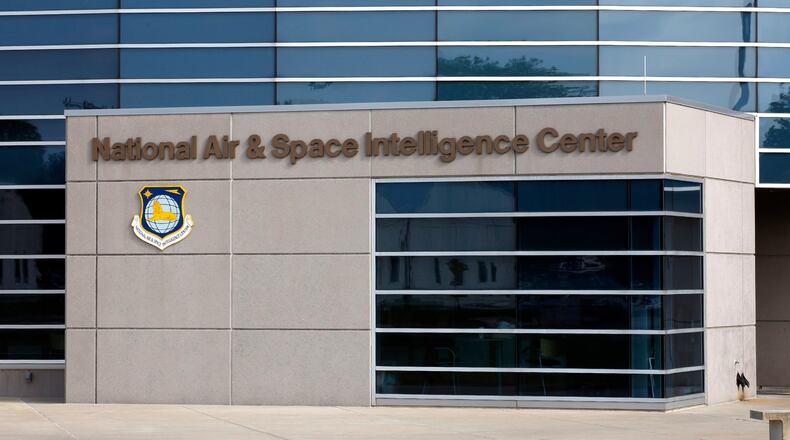Based at Wright-Patterson, NASIC will get $35 million for construction of a new “energy resilient conservation investment program,” an energy efficiency project for NASIC, which is getting a new $182 million headquarters at the base.
“They have an existing cooling system that needs to be redone; these are big, expensive systems,” Portman, a Republican, said in an interview. “And right now they have downtime with their equipment because it’s failing. They have data loss, and so they have convinced the Air Force this is a priority, and they’ve convinced us it’s a priority. And we got it in there.”
In all, a total of $58.5 million in military construction funding was secured for Wright-Patterson, Turner’s office said Thursday, as part of the House’s version of the NDAA for fiscal 2021, which passed the House Armed Services Committee Wednesday night and is headed to the House floor later in July.
This includes funding for a pair of Wright-Patterson projects on which both the House and Senate so far agree: $35 million for the Energy Resilience and Conservation Investment Program at NASIC, as well as $23.5 million to replace a hydrant fuel system at Wright-Patterson, Turner’s office said.
With those projects and the $182 million expansion at NASIC, Wright-Patterson has gained more than $240 million from the House Armed Services Committee in the past three years, said Turner, R-Dayton.
Sen. Sherrod Brown, D-Ohio, introduced a bipartisan amendment to the NDAA with Sen. Tim Scott, R-S.C., that would increase Air Force funding for Department of Defense’s (DoD) Historically Black Colleges and Universities and Minority Institutions Program. And Brown’s office said he introduced an amendment with Portman to support cybersecurity efforts between the DoD and American academic institutions, requiring the DoD to report on work with academic researchers in the development of cybersecurity capabilities.
Brown, Portman and Turner have also urged Air Force Secretary Barbara Barrett to move the headquarters for U.S. Space Command to Wright-Patterson.
Also in this NDAA, the National Museum of the U.S. Air Force — which just reopened to the public Wednesday after being closed since mid-March — is set to receive authorization to accept property that has been named after people.
The museum “wanted to be able to receive name-bearing gifts of real property,” Portman said.
The idea is simple: To allow the Air Force Museum, and all military museums, to accept gifts of real property that have a specific name attached to the donation.
The authorization will allow the museum to accept items “in a more efficient and effective manner, we’re told,” Portman said.
The $23.5 million in funding for a hydrant fuel system for the Defense Logistics Agency will replace an aging system to refuel aircraft. Brown, Portman and Turner said they all worked for language funding the hydrant fuel system.
The defense budget has not received a final vote in the Senate.
Portman, Ohio’s junior senator, hopes the legislation will see final passage later in July, perhaps by July 20.
The overall NDAA supports $740.5 billion in defense spending in fiscal 2021, which begins Oct. 1. On June 10, the Senate Armed Services Committee voted 25-2 advance the bill to the Senate floor.
About the Author

